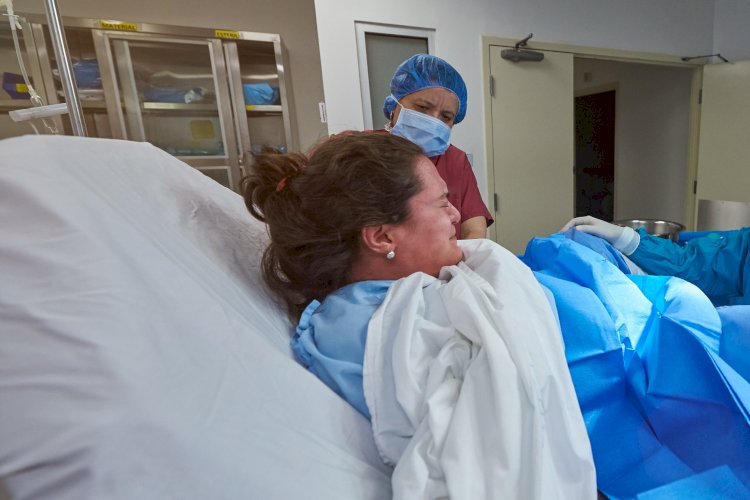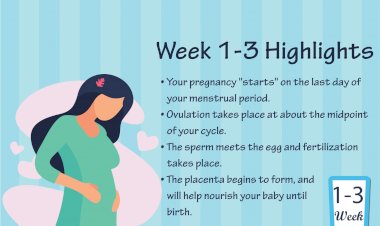Complications of labor and delivery

Complications of labor and delivery
Most pregnancies take place without any complications. But, some pregnant women experience complications which can be harmful for health of both baby and mother. In fact, sometimes issues or diseases that mother has before getting pregnant can also lead to number of complications and even some complications take place during delivery as well. But, complications with prenatal care and early detection can help in reducing further risk that will be fruitful for you and for your baby’s health.
List of common complications women face during delivery -
There are so many complications that pregnant ladies have to go through at time of delivering a baby. Some of the common complications which ladies face during labor and delivery include:
Failure to progress -
Labor can be defined as having failed or prolonged to progress especially when it last for abnormally long time period. For first time pregnant ladies, labor lasting for more than 20 hours is described as failure to progress, while on other hand, who have given birth before, for them labor lasting for 14 hours or more is described as failure to progress. This problem can occur in any labor stage, but it mostly happen during active phase.
There are many causes of prolonged labor or failure to progress. Some of them include slow effacement, slow dilation of cervical canal, delivery of multiple babies, large baby, small birth pelvis or canal, emotional factors like fear, stress and worry. Pain medications are another factor which also contribute in weak uterine contradictions. In cases of failure to progress, ladies will be provided labor inducing medications or cesarean section.
Infections -
A huge variety of parasitic, bacterial and viral infections that may complicate pregnancy. Infections can harm both baby and mother, that’s why it is important to have right treatment. Some common infections are Group B Streptococcus, hepatitis B, urinary tract infection, cytomegalovirus, bacterial vaginosis, influenza, Zika virus, yeast infection and toxoplasmosis, an infection which is caused by parasite found in soil, cat feces and raw meat.
These infections can be prevented by washing your hand from time to time. While on other hand, some can be prevented by vaccination such as influenza, virus and hepatitis B.
Postpartum hemorrhage -
Postpartum hemorrhage is a type of complication which occurs once baby is born. PPH is uncommon and losing blood during birth of child is normal. PPH means excessive bleeding from vagina after birth. PPH are of two types, depending on bleeding which takes place -
- Immediate or primary PPH- Bleeding which occurs within 24 hours of birth.
- Delayed or secondary- Bleeding which occurs after 24 hours upto 6 weeks after birth.
Premature delivery -
One of the most faced and greatest complication is giving birth to baby before his or her actual date of coming out. For example, in most of the cases lungs remain undeveloped and babies are not able to breathe properly or their body do not generate much heat to keep them warm. A full pregnancy lasts for about 40 weeks, while on other hand, having contractions before 37 weeks is known as preterm labor. So, baby born before completing 37 weeks is called premature baby and is at high risk of delivery complications such as digestive problems, immature lungs, respiratory distress and much more.
Umbilical cord compression -
The fetus kicks and moves inside uterus, due to this umbilical cord can wrap as well as unwrap itself around baby several times during the pregnancy period. So, this give rise to cord accidents in which cord get twisted and this leads to blockage of supply of blood to baby. But, this complication happens rarely and most importantly it can not be prevented.
Sometimes, umbilical cord get compressed and stretched during labor which leads to brief decrease in flow of blood to fetus. This can even cause short drops in heart rate of fetal popularly known as variable decelerations. This can be picked up with help of monitor during labor pain. Cord compression happens in one in every 10 deliveries. In most of the cases, no major concern is given to heart rate change and birth happens normally without any complications. But, in case if baby’s heart rate worsen or show other types of distress then C-section is must.
Conclusion -
There are so many problems that pregnant ladies have to face during or after delivery. But, preparing for these problems well in advance can help you in overcoming complications easily.







































Comments (0)